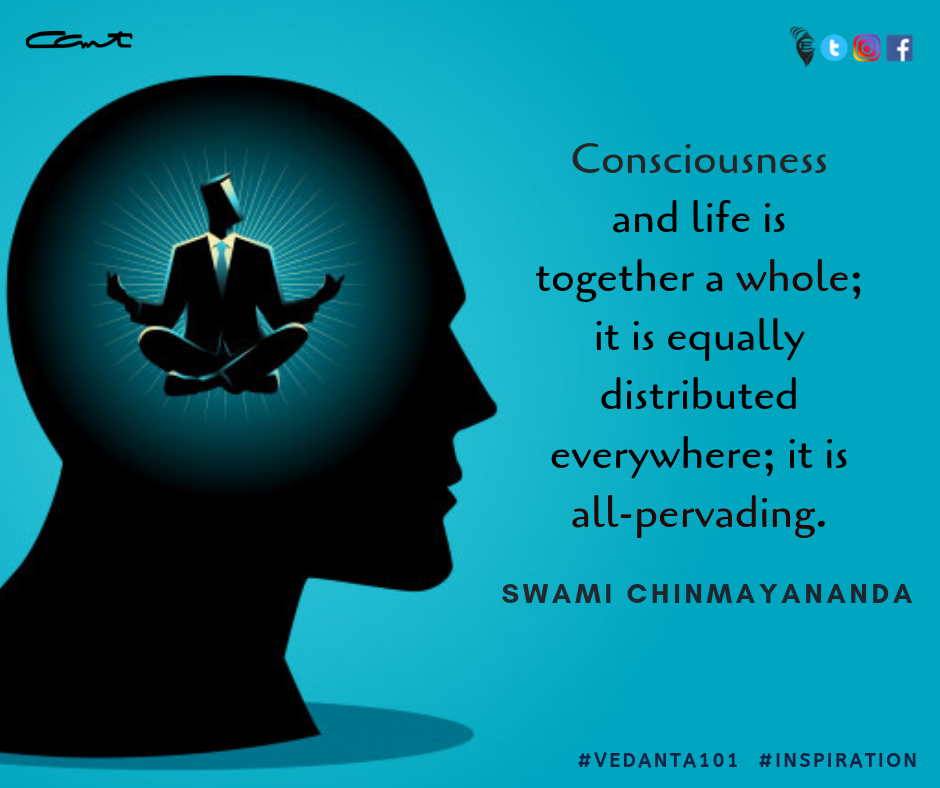The Relevance of the Bhagavadgita to Humanity : 8.3. Swami Krishnananda.
Saturday, November 21, 2020. 12:45. PM.
Chapter 8: The Realism and Idealism of the Bhagavadgita-2.
The First Six Chapters of the Bhagavadgita
(Spoken on Bhagavadgita Jayanti)
------------------------------------
Some of the extra-cosmic enthusiasms of religious phases today become a kind of anathema to realistically-minded, socially-minded, politically-minded outlooks in life, not because religion is bad, but a religion that is unrelated to facts of life loses its meaning. And if there is any outlook of the religious ideal which plants itself firmly on even the lowest values of reality, we have here in the Bhagavadgita a grand consummation of that integrated outlook. It is a friend of the poor, and it is also a friend of the Supreme Creator of the universe. From the uttermost poverty of human thought it rises to the pinnacle of divine perfection. Such is the gamut it covers from the lowest to the highest of levels.
---------------------
So the position which Arjuna maintained, as described for us in the First Chapter, required a lengthy, systematic answer, like the simple mind of a child entering a school requires a gradational teaching from a competent schoolmaster. It is not thrown on the head of the child entirely in one day itself. The whole curriculum is not opened out. Even an entire page is not taught on a particular day. Little by little it is communicated to the receptive mind of the student, only as much as it can munch, chew and swallow and digest, not more. It must take its own time. Undigested food is not food. It is a useless stuff that you have unnecessarily thrown into your tummy. It has to be digested; otherwise, it is better not to take it. So any teaching, to be meaningful, should be also capable of reception, and it can be received only to the extent of the level which one maintains as a student. Everyone knew the level of Arjuna, for instance, the politically motivated soldier in the battlefield. He was not a priest in a temple. He was not a yogi meditating with crossed legs. Nothing of the kind was Arjuna. He was an utter realist of the military type, and what kind of teaching can be given to him? But the militariness of the soldier is one aspect of reality, and it is not the whole reality of him. No man is only a soldier; he is something else also, though we cannot say he is not that. So from the outermost coat of this soldier’s uniform, the Gita’s teaching goes deep into the very soul of that personality until it reaches its climax.
--------------------------
In the beginning the answers are simple, like a friend speaking to a friend. “No, this is not the way you should speak. This is not proper. You have not understood the situation properly. You are confused in your mind. What you have told me just now is not at all correct.” This is a good friend speaking to a beloved friend. It is a simple, friendly, sympathetic and loving suggestion from a well-meaning comrade to another comrade. “I understand what you say, but this is not a correct point of view. You have been carried away by certain feelings which are not capable of reconciliation with the facts of the situation now. Therefore, please give up this downhearted, dispirited mood. Rise up to the occasion; do your duty, the thing for which you have come here. Get up! Be bold!” This is the whole of the Gita. If you would be ready to accept this much, there is no need to say anything further. Why should you be told anything more than that? When I say this is not okay, you must do that for which you have come here. Why should I tell you anything further than that? That is sufficient. In a way, it looked that the teaching was over.
--------------------
But the problem was deep-rooted, like a chronic illness. It was not just a surface illness. There was a peculiar kind of inability on the part of the student, Arjuna, in wholly accepting this little friendly suggestion and swallowing it entirely, but he was good enough to accept that he was confused in his mind. In the beginning, there was a pithy suggestion: “Get up and be bold and do what is proper for the occasion.” Arjuna gave a reply: “How would you expect me to do that? You say to get up and be bold, but how is it possible? Do you not appreciate some difficulty here?” And he repeated almost what he said earlier, more concisely. However, he added something more.
----------------------
“I accept that I am not able to understand what is proper. I am confused. What is right and what is wrong is not clear to me. I am dharma 'samudha cetaha (BG 2.7). 'My mind is completely bereft of the sense of what is proper. Therefore, I approach you, Great One, as a humble disciple. : Consider me as your student. : Instruct me. Prapana: I have almost surrendered myself to you. I am at your feet.”
To be continued ....
==============================================





Comments
Post a Comment